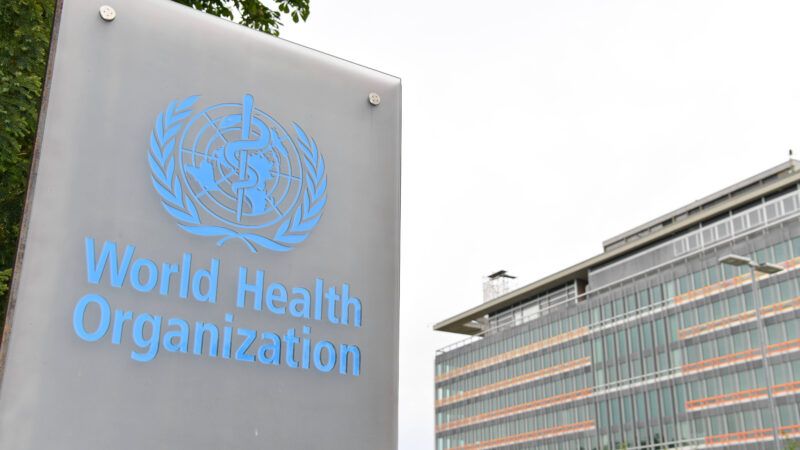WHO's Absurd Claim That Tobacco Farming Is Causing Children To Starve
The organization has a long history of pushing bogus anti-tobacco claims.

With the COVID-19 pandemic fading away, the World Health Organization (WHO) is returning to its core mission: making bogus, paternalistic attacks on tobacco users and producers.
To promote its World No Tobacco Day this year, WHO has been running a "grow food, not tobacco" campaign that mendaciously pins food insecurity on the global tobacco trade. "Tobacco is grown in over 124 countries, taking up 3.2 million hectares of fertile land that could be used to grow food," reads a recent WHO report, which it says "compounds the food security issues" faced by low- and middle-income countries.
In addition to starving their countrymen, tobacco farmers are also keeping themselves trapped in poverty by growing a crop that offers little economic return, says the WHO report. Tobacco companies' subsidization of seeds, fertilizers, financing, and more keeps farmers growing this toxic substance. A lack of government subsidies for alternative grows leaves them stuck in this grim business.
To drive home the point about tobacco's ruinous impact, the WHO report and associated campaign material feature pictures of dead-eyed, malnourished children holding up food bowls filled with smoldering cigarette butts.
On the most trivial level possible, it's of course true that land used to grow tobacco isn't being used to grow food. This is also true of all other land uses that don't involve the production of food too.
A residential subdivision, factory, office building, or nature preserve are all also taking up land that could conceivably be turned over to food-producing agriculture. Are these things also to blame for global food insecurity? A reasonable person would say no, but the WHO would have to say yes.
The organization's point is even more confusing when one considers that food production is increasing, even as the amount of land used for agriculture is falling. People aren't going without food for want of land to grow it on.
In its own report, the United Nations pins food insecurity on things like conflicts (including the war in Ukraine), economic shocks (including the pandemic and pandemic mitigation policies' impact on food production), and extreme weather events.
Growing less tobacco isn't going to bring peace to Ukraine's wheat fields, lift sanctions on Russian fertilizer, or straighten out supply chains disrupted by COVID and the lockdowns that came with it.
If anything, getting farmers to tear up their tobacco fields could well make global food insecurity worse by reducing poor farmers' incomes.
WHO's financial advice notwithstanding, tobacco farmers are probably a good judge of their own financial position. They're growing the crop that nets them the highest returns. If switching to growing something else would make them more money, they'd do that.
If it wouldn't, abandoning tobacco would just be reducing their incomes, leaving them with less money to spend on nutrition and other essentials.
It's easy to see how absurd WHO's logic is when applied to a rich Western country. Would our economic and nutritional state be improved by more people leaving their higher-earning, non-food-producing jobs to take up work in subsistence agriculture? Obviously not. We'd be poorer, and hungrier for it. The same is true for people in poor countries.
Tobacco farmers themselves understand that the WHO campaign against their industry is not really for their benefit. As a Reason documentary covered, when WHO had its tobacco control conference in India in 2016, tobacco farmers showed up to protest and were promptly arrested. (That particular violation of tobacco farmers' rights doesn't get a mention from WHO, despite the fact it happened outside its own conference.)
At the end of the day, people grow tobacco because people smoke tobacco. That's WHO's ultimate problem. As its "World No Tobacco Day" suggests, the organization sees no merit whatsoever in people's voluntary choice to use tobacco products.
This isn't a new thing.
As Reason's Brian Doherty covered two decades ago, WHO has a long history of advocating for restrictions on people's right to use tobacco (and pushing bogus research to do it.) These efforts have been treated on par with its efforts to combat things like malaria.
The pandemic might have briefly shifted the organization's focus. With COVID-19 becoming just another disease, the organization can go back to fighting Public Health Enemy No. 1.
Rent Free is a weekly newsletter from Christian Britschgi on urbanism and the fight for less regulation, more housing, more property rights, and more freedom in America's cities.


Show Comments (36)